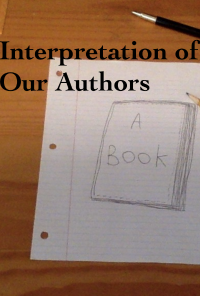Introduction
Thomas C. Foster, in “How to Read Literature Like a Professor,” stated that “there is only one book.” This book, he argued, is the collection of all the works of writing that have ever been composed over all of human existence. This is because, according to Foster, each author was somehow influenced in their writing by some author or group of authors before them. Therefore, like a concise and effective plot line, each work of literature contains within itself little traces of some prior work, and the influences of some later one. While I agree with Foster on this claim, I do not think that we all read like professors.
It is true that anyone can likely learn how, but for many people, a book is a book. To myself and many others, a book is a fun and thrilling story, or account, that is simply enjoyable to read. I read books for the characters and the adventures they go on even more so that I do for the philosophy and hidden meanings embedded within them (although, this would not be the case for purely-philosophical works of literature, but we’ll make an exception in this case). Writing is, for many individuals, simply an adventure on its own, even without acknowledgment to the deeper meaning and connections throughout and within every work of literature (though, I will admit, those are fun to decode, as well).
So why me? Why did I say to myself, “I shall write a book about other authors and what I think of them?” There are mountains of books that have been written simply for the purpose of interpreting past authors and works of literature. There are people with full doctorates in literature of many types that have written books like this. So who did I, an amateur writer who has only a few books on the market, without even a doctorate degree in literature, decide to write this book? Well, as I stated before, I am not one to typically begin reading a book with the intention of uncovering its every secret: I primarily read for the story.
And, for most readers, I am assuming that that is the case for you as well. Therefore, whether you reading this book right now see yourself as merely a basic reader, or the most profound writer to have ever walked the Earth, I hope that you enjoy reading my nonprofessional take on many of our favorite (and lesser-known) writers, novelists, and poets. (This is the reason for the crude cover of this book - the fact that this is merely a brief and simplistic overview). And for the rest of you, who are simply seeking out a good read and are on the fence about any of these individuals whom I am about to write, I hope that I shall provide some simple insight into their writing enough for you to decide if you would rather read “War and Peace” or “All Quiet on the Western Front.”
But, as I stated before, I do believe, as Thomas C. Foster stated, that every book is but a chapter in a larger book, always being written before us. This book that you are reading now more directly reflects the works of the past, as I am writing directly of them and their authors. This is not a book that you should take too seriously: I am not a literary professor, and these are merely my perceptions on many of our authors throughout history. However, I do hope that my words will provide some insight into some of the most famous (and not so famous) adventures that one could pick up, sit down on their couch with, and explore.
And lastly, let no word of mind thrust you forth or hinder you from your reading or writing endeavors. Only treat this book as a guide that you may choose to observe if you wish, and if you do not, then let me rot on your shelf! So, without further ado, I present to you interpretations of our authors.
